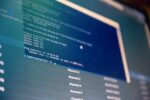The Charlotte Parkes Leaked Scandal: Unveiling the Truth
-
Table of Contents
- The Charlotte Parkes Leaked Scandal: Unveiling the Truth
- The Charlotte Parkes Leaked Scandal: What Happened?
- The Aftermath: Public Outrage and Legal Ramifications
- The Broader Implications: Privacy and Security in the Digital Age
- The Importance of Strong Passwords and Two-Factor Authentication
- The Role of Social Engineering in Cyber Attacks
- The Need for Enhanced Cybersecurity Measures
- Q&A: Addressing Key Questions
- 1. How can individuals protect themselves from data breaches?
- 2. What legal actions can be taken against the hacker?
- 3. How can organizations improve their cybersecurity measures?
- Conclusion
In recent months, the internet has been abuzz with rumors and speculation surrounding the alleged leak of sensitive information belonging to Charlotte Parkes, a prominent public figure. This scandal has captivated the attention of millions, raising questions about privacy, security, and the consequences of digital vulnerability. In this article, we will delve into the details of the Charlotte Parkes leaked scandal, examining its implications and shedding light on the broader issues it highlights.
The Charlotte Parkes Leaked Scandal: What Happened?
On a fateful day in early June, news broke that Charlotte Parkes, a well-known actress and philanthropist, had fallen victim to a massive data breach. It was reported that a hacker had gained unauthorized access to her personal and professional accounts, subsequently leaking a trove of sensitive information.
The leaked data included personal emails, financial records, and even intimate photographs. The hacker, who remains unidentified, claimed to have obtained this information through a combination of social engineering techniques and exploiting vulnerabilities in Parkes’ online security measures.
The Aftermath: Public Outrage and Legal Ramifications
As news of the leak spread like wildfire, public outrage grew exponentially. Supporters of Parkes rallied behind her, condemning the invasion of privacy and demanding justice for the violation she had endured. The incident also sparked a broader conversation about the vulnerability of public figures and the need for stronger cybersecurity measures.
From a legal standpoint, the leak raised numerous questions regarding the hacker’s liability and potential consequences. While the unauthorized access and dissemination of personal information are clear violations of the law, identifying and prosecuting the perpetrator remains a significant challenge.
The Broader Implications: Privacy and Security in the Digital Age
The Charlotte Parkes leaked scandal serves as a stark reminder of the risks individuals face in an increasingly interconnected world. It highlights the urgent need for individuals and organizations alike to prioritize privacy and security in their digital endeavors.
The Importance of Strong Passwords and Two-Factor Authentication
One of the key lessons from this scandal is the critical role that strong passwords and two-factor authentication play in safeguarding personal information. Weak passwords and the reuse of passwords across multiple accounts make individuals more susceptible to hacking attempts. By utilizing unique, complex passwords and enabling two-factor authentication, individuals can significantly enhance their online security.
The Role of Social Engineering in Cyber Attacks
The Charlotte Parkes leaked scandal also underscores the prevalence of social engineering techniques in cyber attacks. Social engineering involves manipulating individuals into divulging sensitive information or granting unauthorized access. By raising awareness about these tactics and educating individuals on how to identify and mitigate them, we can collectively reduce the success rate of such attacks.
The Need for Enhanced Cybersecurity Measures
While individuals must take responsibility for their own online security, organizations also have a crucial role to play in protecting the privacy of their users. Robust cybersecurity measures, including regular security audits, encryption protocols, and employee training programs, are essential in safeguarding sensitive data from potential breaches.
Q&A: Addressing Key Questions
1. How can individuals protect themselves from data breaches?
Individuals can protect themselves from data breaches by:
- Using strong, unique passwords for each online account
- Enabling two-factor authentication whenever possible
- Avoiding suspicious emails and phishing attempts
- Regularly updating software and operating systems
- Being cautious about sharing personal information online
2. What legal actions can be taken against the hacker?
Legal actions against the hacker can include:
- Criminal charges for unauthorized access and dissemination of personal information
- Civil lawsuits seeking damages for privacy violations
- Cooperation with law enforcement agencies to identify and apprehend the perpetrator
3. How can organizations improve their cybersecurity measures?
Organizations can enhance their cybersecurity measures by:
- Conducting regular security audits to identify vulnerabilities
- Implementing encryption protocols to protect sensitive data
- Providing comprehensive employee training on cybersecurity best practices
- Monitoring network traffic for suspicious activity
- Keeping software and systems up to date with the latest security patches
Conclusion
The Charlotte Parkes leaked scandal serves as a wake-up call for individuals and organizations alike, highlighting the importance of privacy and security in the digital age. By learning from this incident and implementing robust cybersecurity measures, we can mitigate the risks posed by data breaches and protect ourselves from potential harm. Let us remember that safeguarding our digital lives is a collective responsibility, and together, we can build a safer and more secure online world.




0 Comment